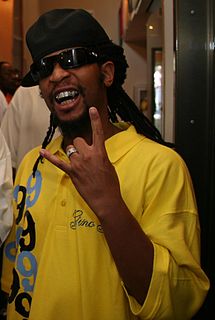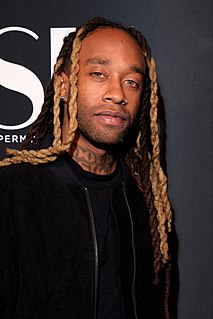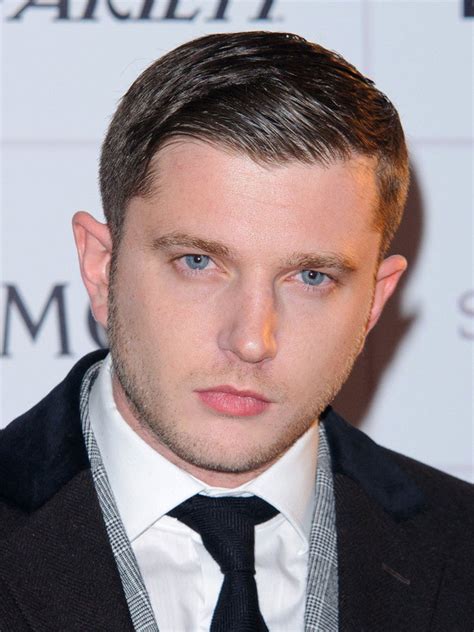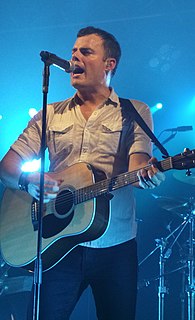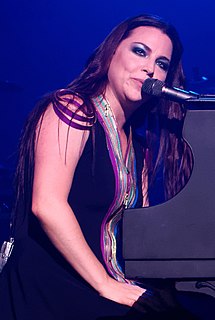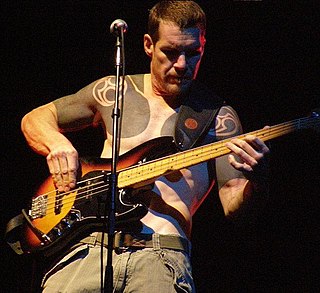A Quote by Lee Ranaldo
This was early '90s and in New York hip-hop was coming on really strong; that was the sort of urban folk music that was almost threatening to eclipse rock music and indie rock music in terms of popularity, which it has certainly gone on to do. But you know, this is the end of the 1980s, beginning of the '90s. The whole independent label thing has really evolved to this incredible point from the early '80s when we started, and there wasn't one record label at all, until a couple people started forming these small labels.
Quote Topics
Almost
Beginning
Certainly
Coming
Couple
Early
Eclipse
End
Evolved
Folk
Folk Music
Forming
Gone
Hip
Hip-Hop
Hop
Incredible
Independent
Indie
Indie Rock
Know
Label
Labels
Music
New
New York
People
Point
Popularity
Really
Record
Record Label
Rock
Rock Music
Small
Sort
Started
Strong
Terms
Thing
Threatening
Until
Urban
Which
Whole
York
Related Quotes
Hip-hop kind of absorbed rock in terms of the attitude and the whole point of why rock was important music. Young people felt like rock music was theirs, from Elvis to the Beatles to the Ramones to Nirvana. This was theirs; it wasn't their parents'. I think hip-hop became the musical style that embraces that mentality.
I've got all of the old school vinyls from the '70s - even further back, like the jazz music in the '40s, '50s, '60s. Then I've got all the '80s stuff underground, hip-hop when hip-hop really first started. The '90s stuff. All of the good stuff, because I'm really into music, and it helps me create new songs now.
The hip-hop that I really connected with was Public Enemy, KRS-One, Ice Cube, and N.W.A. That late '80s and early '90s era. The beginning of gangster rap and the beginning of politically conscious rap. I had a very immature, adolescent feeling of, "Wow, I can really connect with these people through the stories they're telling in this music."
When I'm representing my music live I think of it very much in a rock band sense. When I first started doing festivals in the 90s there really weren't other DJs playing the stages I was playing. So I felt I was being afforded an opportunity to kind of make a statement about what DJ music can be live. In the 90s, if you were a DJ you were in the dance tent, and you were playing house music and techno music. There was no such thing as a DJ - a solo DJ - on a stage, after a rock band and before another rock band: that just didn't happen.
When I started out as a music journalist, at the end of the 1980s, it was generally assumed that we were living through the lamest music era the world would ever see. But those were also the years when hip-hop exploded, beatbox disco soared, indie rock took off, and new wave invented a language of teen angst.
I love the way I make hip-hop and I refuse to make pop-rap. I don't refuse to make mainstream music, which is why I did a soul record. There was no reason why soul music couldn't get played on the radio and I still wanted to have a relationship with my record label. So, I really enjoyed doing the Strickland Banks album. But there's no point in my trying to release underground hip-hop music on a major label. That part of my talent, or part of my art, had to live somewhere else and feature film was the perfect vehicle for it.
To a degree, rock fans like to live vicariously and they like that, music fans in general, but when indie music sort of came into prominence in the early '90s, a lot of it was TV-driven, too, where if you saw the first Nirvana video, you're looking at three guys that look like people you go to school with.
I always say to people that I left hip-hop in '97, meaning that I departed from listening to predominately hip-hop and just started really getting into records from the late '60s, early '70s. And once I made that change, I realized how much great music was made back in the day, and it started to become apparent how much we've lost in music.


